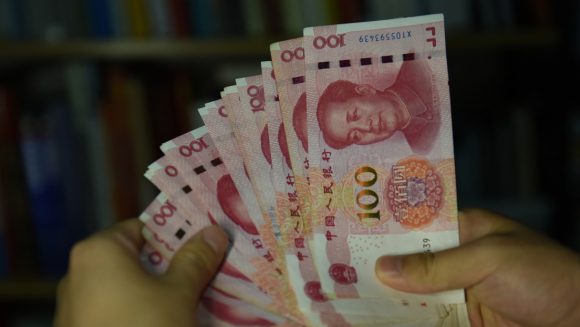Photo: Getty Images.
The Argentine Economy Minister, Sergio Massa, announced on Wednesday an agreement with China that will allow him to pay for imports with that country
in yuan.
Given the few dollar reserves and the low collection due to the drought, the South American country activated the 'swap' of currencies for bilateral exchange.
According to the official, Argentina will pay
imports equivalent to 1,040 million dollars in April
and 790 million in May in Chinese currency.
According to Massa, "after an agreement with different companies," the government reprogrammed the payment instrument for those imports originating in China, which "stop weighing on the outflow" of dollars and "become part of the flow of out of yuan".
The agreement was signed at the Palacio de Hacienda in Buenos Aires, with the presence of the Chinese ambassador to Argentina, Zou Xiaoli, and bankers and businessmen from the Asian giant.
Meanwhile, Massa was accompanied by part of his cabinet and the president of the Central Bank (BCRA), Miguel Pesce.
against speculation
"This improves the perspective of net reserves in Argentina. It gives us more freedom and adds us capacity to function from the BCRA, in these days that we had to make the decision to intervene against those who, thinking that we did not have economic capacity as a
State , they speculated and over-speculated
," said the minister.
Massa thus referred to the rise of the parallel or 'blue' dollar that has been recorded in recent days.
The North American currency that operates outside banking channels rose from 400 to 490 pesos in just over a week, and this Wednesday it fell to 475 after the intervention of the Government, which sold bonds and reserves to stop the rise.
On Tuesday, President Alberto Fernández blamed "the right" for installing "rumors" to destabilize the exchange wheels and then "withdrawing their profitability", hurting "the savings of Argentines and Argentines."
Progress of 'de-dollarization'
Faced with the complex international context of 2022 for the global economic and financial system, there are several countries that chose to begin a process of 'de-dollarization' and strengthening of their national currencies or other alternatives.
In Latin America, Brazil took the lead earlier this year, when it led the way by promoting the use of the yuan for commercial operations with its main partners, challenging the dominance of the US currency.
Amid the dispute between the US and China to conquer markets in the region, the government of Luiz Inácio Lula da Silva advanced in trade and investment negotiations with the Asian giant, enabling payments directly in Brazilian reais and Chinese yuan .
On the other hand, Argentina and Brazil, which share and lead the Common Market of the South (Mercosur), are currently talking about the possibility of creating a common currency, with the aim of "promoting trade and integration to the world without losing" its "sovereignty and economic freedom".
(Taken from RT in Spanish)
